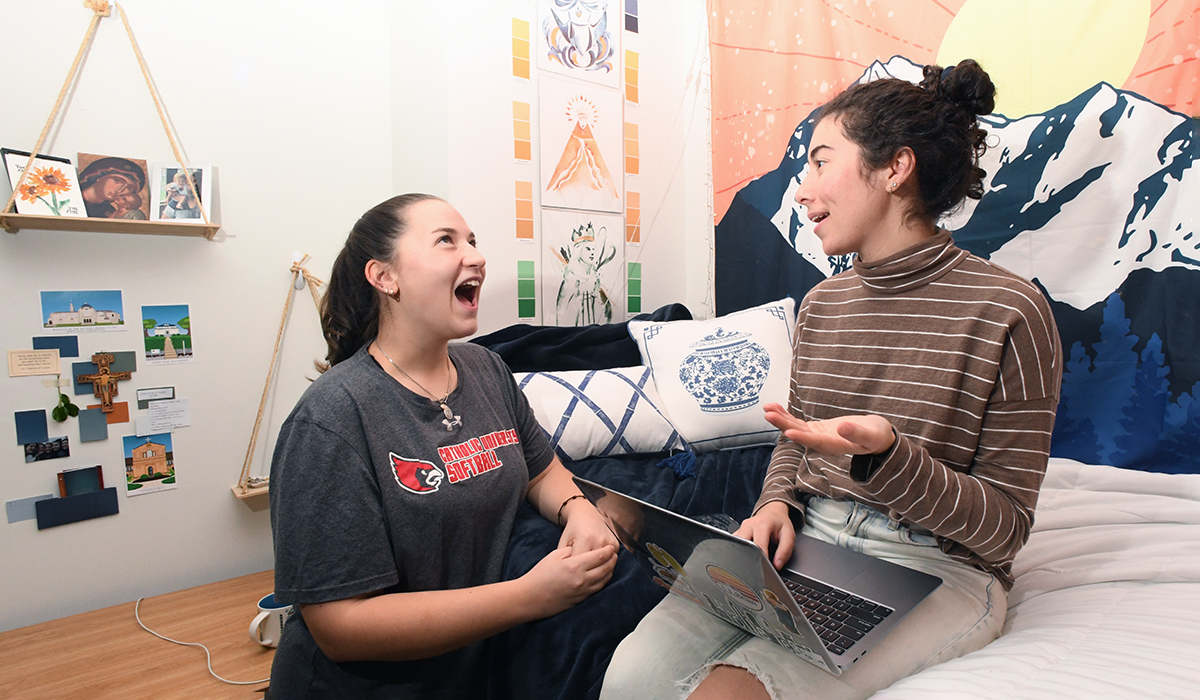The Residence Life team at Catholic University has developed a residential experience designed to help students become well-rounded and positively engaged members of their communities.
The residential experience is designed around three primary learning goals:
Personal Progress
Residents will discover ways to personally grow
Personal Progress is essential to the college experience as it is necessary to becoming our best, most authentic selves. In this supportive environment, residents will understand who they are by exchanging ideas; exploring their faith, spiritual, and philosophical identity; learning about mental and physical wellness; and deciding which values, virtues, and morals are important to them. Our notion of Personal Progress is built off of Baxter-Magolda's theory of Self-Authorship and involves being able to articulate your beliefs, take ownership of your decisions and actions, and advocate for yourself when necessary.
Personal Progress Learning Outcomes
Students will be able to:
- Identify their core values, morals, motivations, spirituality, and faith
- Understand ways to manage personal emotions and develop emotional intelligence
- Demonstrate mental and physical wellness
- Analyze how their decisions and actions affect themselves and others
- Describe how they have grown personally through their time living in the residence hall
Call to Community
Residents will learn how to be positive and engaged neighbors
Call to Community is fundamental to living in the residence halls because relationships are fundamental to the human experience. Having shared experiences that celebrate our commonalities and differences unites us together and helps us to foster personal connections. Our notion of Call to Community is aligned with the mission of the University and Catholic Social Teaching’s theme of Call to Family, Community, and Participation. It involves treating every person with dignity, learning interpersonal and communication skills, developing healthy relationships with others, and serving the University and wider community with our talents and strengths.
Call To Community Learning Outcomes
Students will be able to:
- Understand how to develop healthy relationships
- Use conflict resolution skills to manage interpersonal disagreements
- Apply their talents and strengths to positively serve their community
- Evaluate their purpose at Catholic University
Lifelong Learning
Residents will understand how lessons in the classroom and in the residence halls will aid their preparation for life after Catholic University
Lifelong Learning stems from the mission of the University, which is to “discover and impart the truth.” Learning is necessary to our personal and collective growth, happening in every avenue of life. Lifelong Learning involves residents understanding their learning style, connecting the lessons that they learn from different environments, learning life skills that will help them in their classes and careers, sharing their wisdom to enrich one another, and thinking about the bigger picture.
Lifelong Learning Learning Outcomes
Students will be able to:
- Determine their learning style
- Relate how lessons in the classroom connect to lessons from living in the residence halls
- Understand life skills that will help them after college

